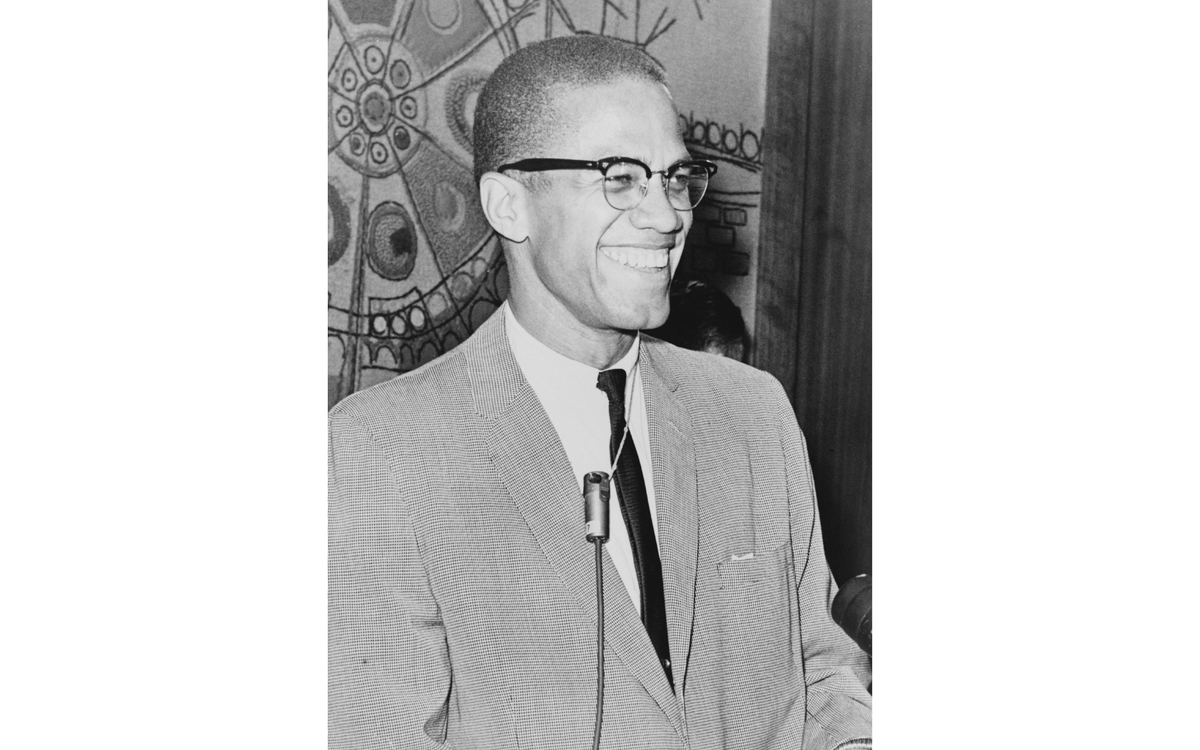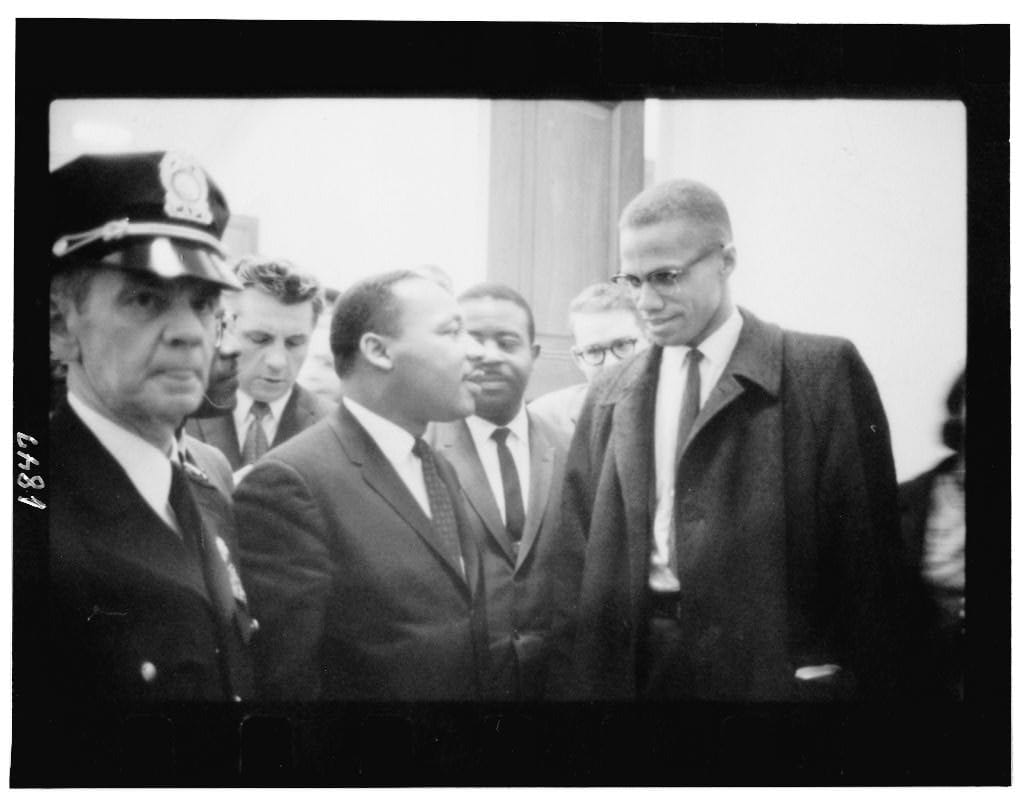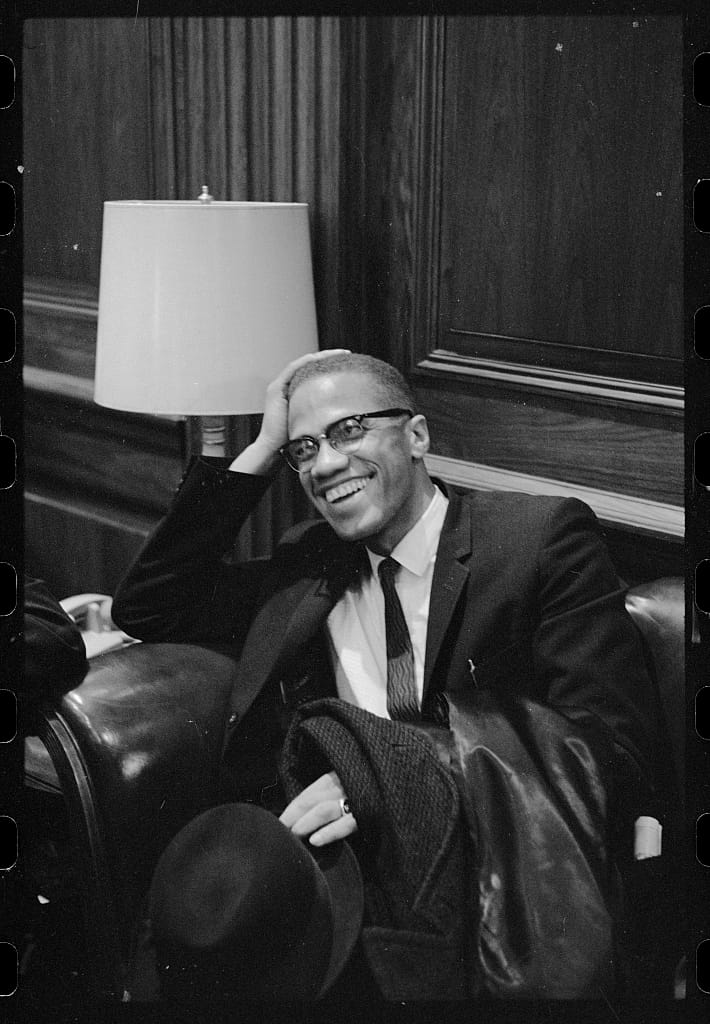Malcolm X Centennial Observed Nationwide
Malcolm X remains a subject of ongoing academic study and cultural reflection, with his life and work continuing to inspire activism and debate both in the United States and abroad.

NEW YORK — May 19, 2025, marks the 100th anniversary of the birth of Malcolm X, a prominent and sometimes polarizing figure in the American civil rights movement.
Born Malcolm Little in Omaha, Nebraska, in 1925, he rose to national prominence in the 1950s and 1960s as a minister and spokesperson for the Nation of Islam, advocating for Black empowerment, self-defense, and racial justice.
Malcolm X’s early life was shaped by poverty, racial violence, and systemic discrimination. After a period of incarceration, he joined the Nation of Islam and became one of its most visible and influential figures. His teachings, which emphasized Black pride, economic independence, and resistance to oppression, attracted a large following and sparked widespread public attention.
Sign Up for Atlantic City Focus Weekend Guide
Your Key to Winning the Weekend in AC and Beyond!
No spam. Unsubscribe anytime.
In 1964, Malcolm X left the Nation of Islam and founded Muslim Mosque, Inc., as well as the Organization of Afro-American Unity. He also undertook a pilgrimage to Mecca, which marked a turning point in his religious and political philosophy. Following his travels abroad, his worldview broadened to include global human rights issues and a more inclusive approach to interracial cooperation.
Malcolm X was assassinated on February 21, 1965, in New York City while preparing to address an audience at the Audubon Ballroom in Harlem. Three men were convicted of his murder, though two of those convictions were vacated in 2021 after a re-investigation by the Manhattan District Attorney’s Office and the Innocence Project revealed serious flaws in the original trial.
Over the decades since his death, Malcolm X’s legacy has evolved. Once seen by some as a radical counterpoint to the nonviolent approach of other civil rights leaders, he is now widely recognized as a powerful advocate for justice, dignity, and self-determination.

His autobiography, written with Alex Haley, remains a seminal text in American literature and political thought.
The 100th anniversary of his birth has prompted national and local observances, including educational exhibits, public programs, and community discussions about his influence on contemporary issues of race, identity, and resistance.
Malcolm X remains a subject of ongoing academic study and cultural reflection, with his life and work continuing to inspire activism and debate both in the United States and internationally.

Timeline of Malcolm X’s Life
May 19, 1925 – Born Malcolm Little in Omaha, Nebraska, to Louise and Earl Little. His father was a Baptist minister and outspoken supporter of Black nationalist leader Marcus Garvey.
1929–1937 – The Little family faces repeated harassment by white supremacists. Earl Little dies in 1931 under suspicious circumstances, believed by some to be a murder by white supremacists. Louise Little is later institutionalized, and Malcolm is placed in foster care.
1941–1946 – Malcolm drops out of school and moves to Boston, later living in Harlem. He becomes involved in petty crime and is arrested in 1946 for burglary in Boston.
1946–1952 – While serving a 10-year prison sentence, Malcolm educates himself and converts to the teachings of the Nation of Islam (NOI). Upon release, he adopts the name Malcolm X, rejecting “Little” as a slave name.
1952 – After parole, he rises rapidly within the NOI under Elijah Muhammad’s leadership. He becomes the minister of several mosques, including those in Boston, New York, and Philadelphia.
1959 – Appears in the television documentary The Hate That Hate Produced, bringing national attention to Malcolm X and the Nation of Islam.
1963 – Begins to publicly question Elijah Muhammad’s leadership. Tensions rise within the Nation of Islam.
March 1964 – Malcolm officially leaves the Nation of Islam and founds Muslim Mosque, Inc., and later the Organization of Afro-American Unity (OAAU). He embraces Sunni Islam and a broader global view of human rights.
April 1964 – Travels to Mecca on a pilgrimage (Hajj), where he has a transformative experience. Begins using the name El-Hajj Malik El-Shabazz.
1964 (May–November) – Travels across Africa and the Middle East, meeting with leaders and activists. His experiences further shape his views on race, colonialism, and international solidarity.
February 21, 1965 – Malcolm X is assassinated while preparing to speak at the Audubon Ballroom in Harlem. He was 39 years old. Three men were convicted of his murder; two of those convictions were overturned in 2021.
Ossie Davis's eulogy for Malcom X at the End of Malcom X Movie by Spike Lee
Posthumous Legacy:
- 1965 – The Autobiography of Malcolm X, co-written with Alex Haley, is published and becomes a foundational work in African American and American literature.
- 1992 – Spike Lee’s film Malcolm X, starring Denzel Washington, introduces his life story to a new generation.
- 2021 – Two men wrongfully convicted of his assassination are exonerated after new evidence surfaces.
- 2025 – Centennial of Malcolm X’s birth is commemorated with national events, exhibits, and educational programs.
Thanks for reading the whole story!
At Atlantic City Focus, we're committed to providing a platform where the diverse voices of our community can be heard, respected, and celebrated. As an independent online news platform, we rely on a unique mix of affordable advertising and the support of readers like you to continue delivering quality, community journalism that matters. Please support the businesses and organizations that support us by clicking on their ads. And by making a tax deductible donation today, you become a catalyst for change helping to amplify the authentic voices that might otherwise go unheard. And every contribution is greatly appreciated. Join us in making a difference—one uplifting story at a time!
*** GET UP WITH ATLANTIC CITY FOCUS and RAYMOND TYLER! ***






